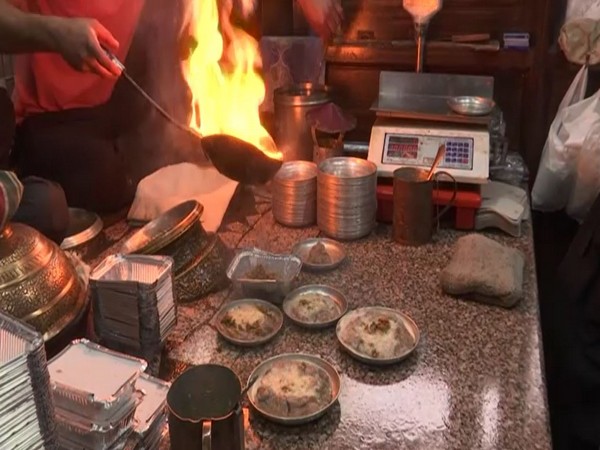Demand for Kashmir's winter meat delicacy 'Harisa' soars in Srinagar as cold wave prevails in J-K
As the harsh winter period locally known as 'Chillai Kalan' continues in the Kashmir valley, the demand of meat delicacy 'Harisa' has seen a rise.

Srinagar (Jammu and Kashmir): As the harsh winter period locally known as 'Chillai Kalan' continues in the Kashmir valley, the demand of meat delicacy 'Harisa' has seen a rise.
The traditional dish is known for keeping the body warm amid winters at such high altitudes where snowfall is a common phenomenon with dipping temperatures.
Made with a mixture of Kashmiri saffron, aromatic spices, rice, meat, and salts, the dish is high in calorie and protein contents. Harisa is also easily digestible.
A seller of Harisa meat in Srinagar, Sibdar Ahmed Malla told ANI that the dish is not only famous within the country but is in demand globally. The dish came from Central Asia many centuries ago, and is served piping hot with local bread.
Also Read |
Pakistan violates ceasefire in J-K's Poonch, Indian Army retaliates
"We have been serving it for 70 years. Its demand is very high in winters as it helps in maintaining the body temperature. We also export it abroad including America, Europe," he said.
Specially during Chillai Kalan, he said, people prefer to eat this dish for breakfast to maintain the body temperature at normal.
Harisa is cooked in a big earthen pot known locally as a 'Mat' which is kept warm by lighting firewood all night and is perfect blend of rice, spices and meat for sub-zero temperatures. It takes about 17 to 18 hours to make a good Harisa.
Locals have also claimed that consuming Harisa relief from body pain.
Also Read |
Pakistan targets forward posts in Noushera
"I have been eating it for the last 7-8 years. It is good for health and everyone here eats it in winters," said a customer, Syed Hashmi.
Another customer, Sahil Majeed, who came to enjoy the delicacy said during winters, the demand for Harisa increases multi-fold and restaurants are crowded.
Harisa is also served in weddings in the valley, said Waseem Ahmad, a local. He also said that the bones become stronger by consuming Harisa.
Explaining the process of cooking Harisa, Sibdar Ahmed Malla said that first rice is cooked with spices until it becomes fluid. Thereafter, the meat is added and left to cook for several hours. Later, all the ingredients are mashed and the bones are removed from the dish.
The temperature in Srinagar was recorded at minus 1.3 degree Celsius on Thursday night. (ANI)
 Dynamite News
Dynamite News 